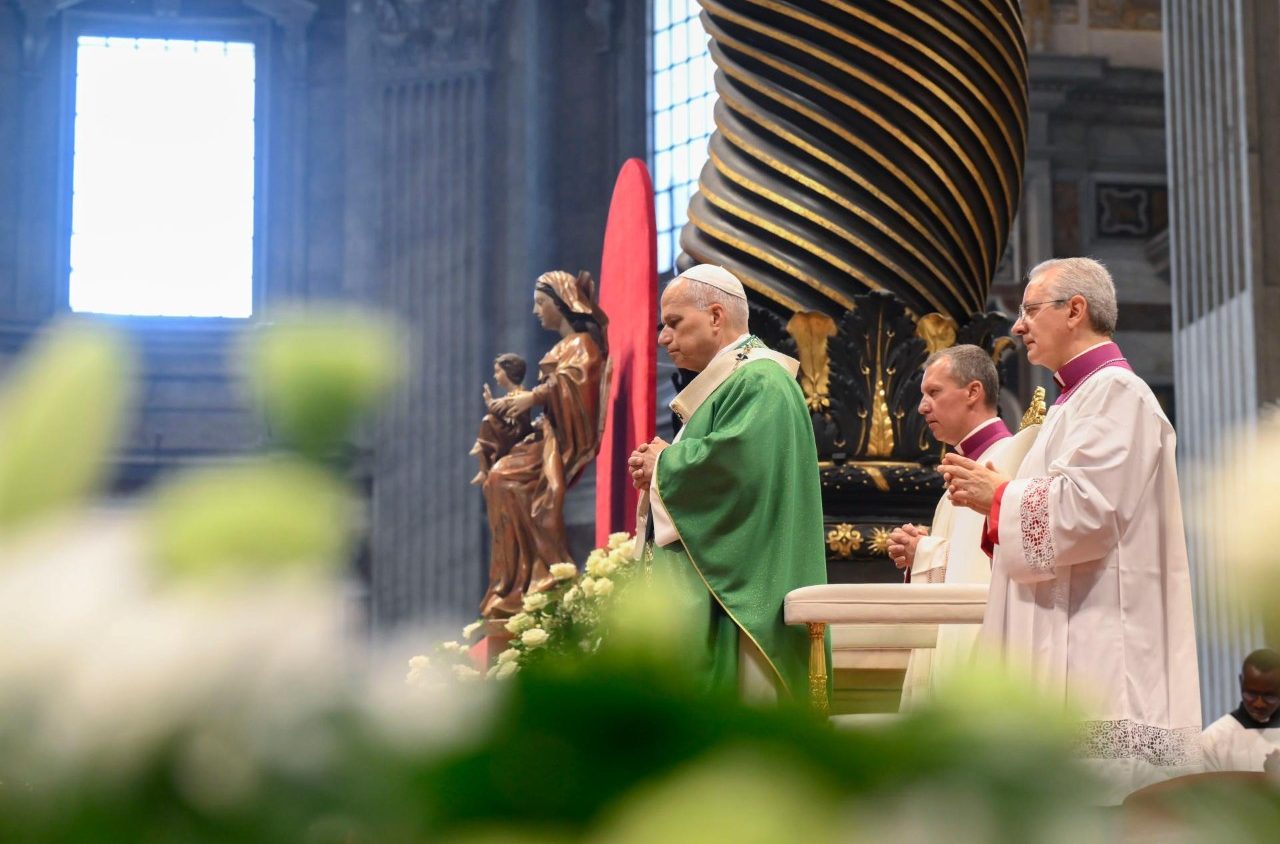Speaking to members of Synodal Teams and Participatory Bodies, Pope Leo urges everyone to humble themselves like the tax collector in the Gospel parable and to find unity amid tensions within the Church.
By Kielce Gussie
During the Mass for the Jubilee of the Synodal Teams and Participatory Bodies in St. Peter’s Basilica, Pope Leo XIV invited all the participants to reflect on the “mystery of the Church.” He reminded them that she is not simply a religious institution with hierarchies and structures. Rather, the Church is “the visible sign of the union between God and humanity”, where God brings everyone together as one family united in love.
Through contemplating what ecclesial communion—created and preserved by the Holy Spirit—means, the Pope explained we can begin to understand what synodal teams and participatory bodies are.
“They express what occurs within the Church, where relationships do not respond to the logic of power but to that of love”, he underlined, stressing that the most important thing in the Christian community is the spiritual life.
Love is the supreme rule
Above all else, Pope Leo urged all the participants to remember that love is the highest rule in the Church. “No one is called to dominate; all are called to serve,” he explained, “No one is excluded; we are all called to participate.”
Therefore, we are all called to seek the whole truth together. This invitation to “togetherness” reiterates the call to communion within the Church. Recalling the words of his predecessor, Pope Francis, in his last Lenten message, the Holy Father reflected on idea of “walking together”. The Argentine pontiff stressed that “Christians are called to walk at the side of others, and never as lone travelers.”
Together but alone
The call to walk together, Pope Leo highlighted, is what the Pharisee and the tax collector from the Gospel parable were missing. While they are in the same place, they are divided and they do not communicate. “Both take the same path, but they do not walk together. Both pray to the Father, but without being brothers and without having anything in common.”
The Pope explained this separation stems above all from the Pharisee’s attitude as his prayer, “though seemingly addressed to God, is only a mirror in which he looks at, justifies and praises himself.” He feels superior to the tax collector and looks down on him. Thus, he focuses on himself rather than on his relationship with God and others.
This, Pope Leo warned, can happen in the Christian community. When egos prevail over the community, leading to an individualism that renders true and brotherly relationships impossible. It can also happen when someone thinks they are better than others.
But, he continued, instead of placing our focus on the Pharisee, we should look to the tax collector. His humility reminds us that within the Church, we all need God and each other. We need to listen and love each other and enjoy walking together because Christ belongs to the humble.
Unity amidst tension
Pope Leo highlighted how synodal teams and participatory bodies are an image of the Church living in communion with one another. Listening to the Holy Spirit with a sense of dialogue, fraternity, and parrhesia (speaking the truth openly and courageously), we can respond to the call to walk together seeking God.
The Pope explained that if we reject clericalism and vainglory, we can create a more welcoming and collegial Church. With this approach, we can live confidently in the midst of tensions in the Church—unity and diversity, tradition and novelty, authority and participation.
“It is not a question of resolving them [the tensions] by reducing one to the other, but of allowing them to be purified by the Spirit, so that they may be harmonized and oriented toward a common discernment,” the Holy Father argued. Members of synodal teams and participatory bodies have an understanding that ecclesial discernment takes interior freedom, humility, prayer, and trust. It is never just one person’s opinion.
Pope Leo called on all those present to dream of and dare to build a humbler Church, who “bends down to wash the feet of humanity; a Church that does not judge as the Pharisee does the tax collector, but becomes a welcoming place for all”.

